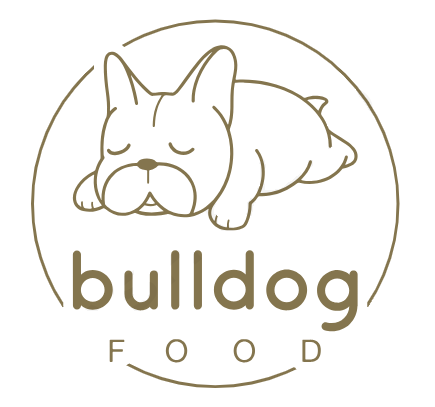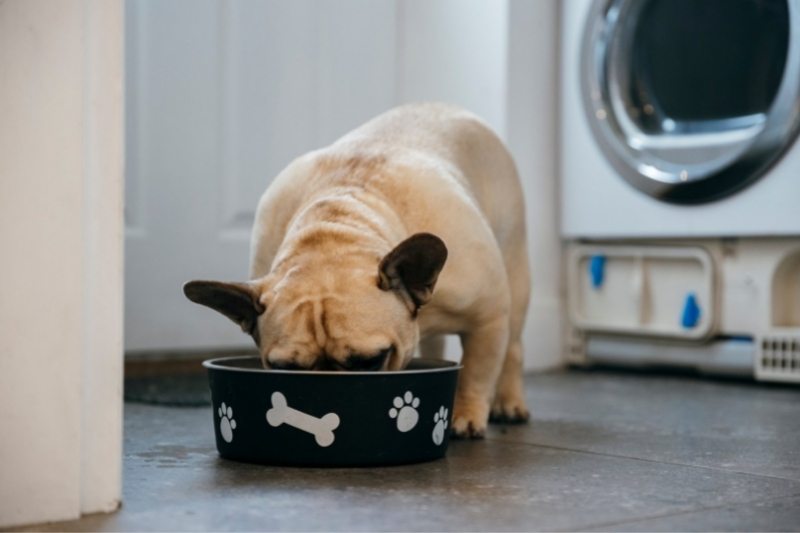
Dog owners often wonder, ” how much should a French Bulldog eat “In order to answer this question, we need to have a clear understanding Feeding your French Bulldog the right amount of food is essential for their overall health and well-being. Proper nutrition supports their growth, energy levels, and prevents various health issues. Determining the optimal amount of food is crucial to ensure they stay fit, happy, and healthy for years to come.
Understanding French Bulldog Nutrition
Macronutrient Breakdown
A balanced diet for a French bulldog should include the following macronutrient ratios:
- Protein: French bulldogs need a high-protein diet to support their muscle maintenance and overall health. Aim for a protein content of 20-30% in their diet.
- Fat: Healthy fats are crucial for maintaining energy levels and a shiny coat. A fat content of 10-15% is typically sufficient.
- Carbohydrates: While not as essential as protein and fat, carbohydrates provide necessary energy. They should make up around 30-50% of the diet.
Factors Influencing Dietary Needs:
- Size and Weight: French bulldogs are small to medium-sized dogs with a robust build.
- Age: Nutritional requirements change from puppyhood to adulthood and into their senior years.
- Activity Level: Active Frenchies may need more calories, while less active ones require fewer.
- Health Conditions: Specific health issues can necessitate dietary adjustments.
Caloric Needs and Portion Sizes
French bulldogs are a small breed, typically weighing between 16 to 28 pounds. Their caloric needs can vary based on age, weight, and activity level. On average, an adult French bulldog requires about 25-30 calories per pound of body weight per day.
- Puppies (2-6 months): Puppies need more calories to support their rapid growth. Generally, a French bulldog puppy may require around 400-600 calories per day, divided into three to four meals.
- Adults (7 months – 6 years): Adult French bulldogs typically need around 500-700 calories per day. It’s best to split this into two meals to prevent bloating and promote better digestion.
- Seniors (7 years and older): Senior Frenchies usually have a slower metabolism and may need around 400-600 calories per day, depending on their activity level and overall health.
How much should i feed my french bulldog
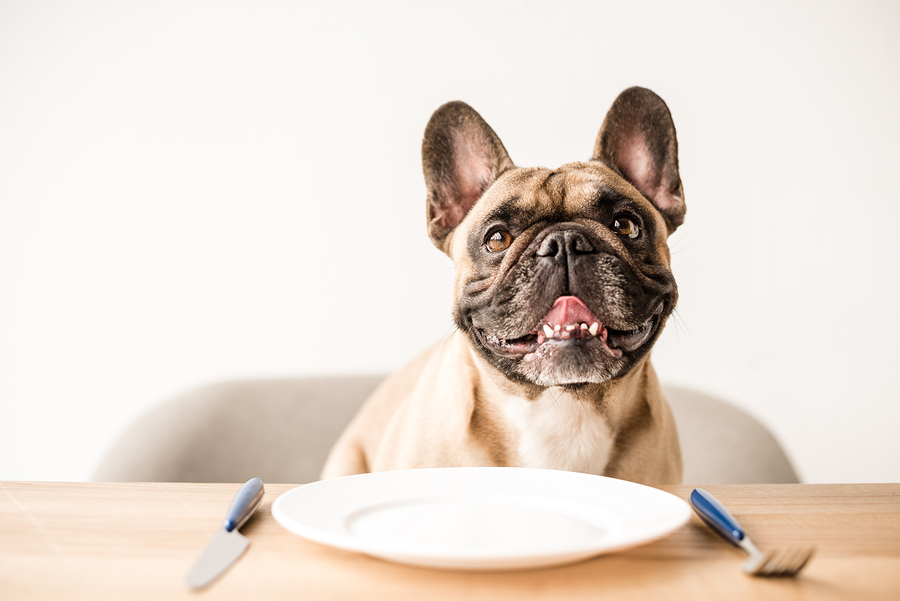
The appropriate amount of food for a French bulldog depends on multiple factors, such as age, weight, and activity level. Below is a general guideline to help you determine the right portion sizes for your furry friend.
Sure, here’s a more detailed breakdown of the recommended feeding guidelines for French bulldogs:
| Age | Weight Range | Activity Level | Daily Food Amount |
| Puppy (2-6 months) | 5-14 lbs (2.3-6.4 kg) | High | 1.5 – 2.5 cups (340-570 grams) |
| Adult (1-7 years) | 16-28 lbs (7.3-12.7 kg) | Moderate | 1 – 2 cups (230-460 grams) |
| Senior (7+ years) | 16-28 lbs (7.3-12.7 kg) | Low to Moderate | 0.75 – 1.5 cups (170-340 grams) |
These amounts are approximate and may vary depending on factors such as metabolism, activity level, and individual health needs. It’s important to monitor your dog’s weight and adjust their food intake accordingly. Always consult your veterinarian for personalized advice tailored to your French bulldog’s specific needs.
Frequency of Feeding
Determining the right feeding frequency for your French bulldog is vital for maintaining their digestive health and overall well-being. Here’s a detailed breakdown of how often you should feed your French bulldog based on their life stage and specific needs:
Puppies (2-6 months)
French bulldog puppies are in a rapid growth phase and have higher energy requirements. Their small stomachs also necessitate more frequent meals to distribute their caloric intake throughout the day and avoid overfeeding in one sitting, which can lead to digestive issues.
- Suggested Feeding Frequency: 3-4 meals per day.
- Meal Distribution: Evenly space meals at intervals of 4-5 hours.
- Portion Control: Use the feeding chart to measure appropriate portions and adjust according to the puppy’s growth and activity level.
- Transitioning Foods: Start with puppy-specific formulas and gradually introduce adult food as they approach 6 months, ensuring a smooth transition to avoid gastrointestinal upset.
Adults (7 months – 6 years)
Adult French bulldogs have more stable energy levels compared to puppies but still benefit from a consistent feeding schedule. Regular feeding times help regulate their metabolism and prevent issues such as hypoglycemia and obesity.
- Suggested Feeding Frequency: 2 meals per day.
- Meal Distribution: One in the morning and one in the evening.
- Portion Control: Follow the guideline for daily food amount based on their weight and activity level, typically around 1-2 cups per day total.
- Routine: Keep a consistent feeding routine to promote a healthy metabolism and avoid behavioral issues related to hunger.
Seniors (7+ years)
As French bulldogs age, their metabolism slows down, and they may develop age-related health issues that necessitate dietary adjustments. Feeding frequency for senior dogs should ensure they receive the necessary nutrients without overburdening their digestive system.
- Suggested Feeding Frequency: 2 smaller meals per day.
- Meal Distribution: Morning and evening with a possible small, healthy snack in between if needed.
- Portion Control: Adjust portion sizes to align with their lower calorie needs and monitor their weight and overall health.
- Special Considerations: Older dogs may benefit from softer food if they have dental issues, and diets higher in fiber to support digestive health.
General Tips for Feeding Frequency
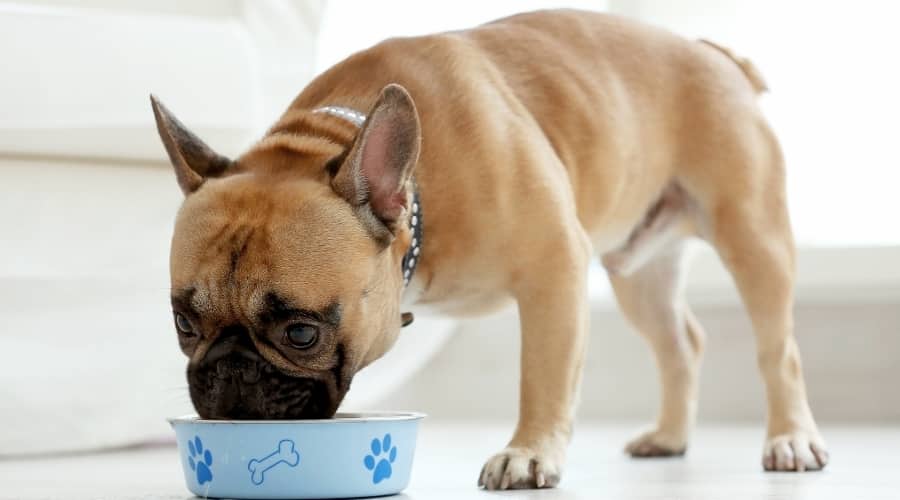
- Consistency: Sticking to a routine is crucial. Regular feeding times help your dog know what to expect and can improve digestive regularity.
- Monitoring: Keep an eye on your dog’s weight and body condition. Adjust meal frequency and portion sizes as recommended by your vet.
- Hydration: Ensure fresh water is always available, especially when feeding dry kibble, to help with digestion and overall health.
- Observation: Watch for signs of overeating or undereating, such as sudden weight gain, lethargy, or looking for food outside of meal times. These could indicate the need for adjustments in feeding frequency or portion sizes.
By adhering to these feeding frequency recommendations, you can help ensure your French bulldog maintains a healthy digestive system, stable energy levels, and an overall sense of well-being. Always consult with your veterinarian for the most personalized advice appropriate for your dog’s individual needs.
Signs of Overfeeding or Underfeeding
Recognizing the signs of overfeeding or underfeeding is essential to ensure your French bulldog maintains optimal health and well-being. Both scenarios can lead to a variety of health issues that can impact your furry friend’s quality of life. Here, we detail the common symptoms and repercussions of both overfeeding and underfeeding.
Signs of Overfeeding
Overfeeding can lead to obesity and other related health problems in French bulldogs. It is important to be mindful of portion sizes and treat intake to prevent excessive weight gain.
- Weight Gain: The most obvious sign of overfeeding is weight gain. You might notice that your dog’s waistline becomes less defined and there is an overall increase in body mass.
- Lethargy: Overweight dogs often exhibit decreased energy levels. If your typically active dog becomes lethargic, it could be due to excess weight.
- Heavy Breathing: Excess weight can put pressure on a dog’s respiratory system, causing them to breathe heavily, even when not exerting themselves.
- Joint Problems: Carrying extra weight can lead to joint issues and exacerbate conditions such as hip dysplasia.
- Frequent Bloating and Gas: Overfeeding can cause gastrointestinal discomfort, leading to symptoms like bloating and excessive gas.
- Decreased Endurance: An overweight dog may struggle with endurance, becoming tired more quickly during walks or playtime.
- Vomiting : Many dog owners often wonder ” why is my frenchie throwing up ” and “is vomiting a sign of overfeeding the dog?” the answer is: Vomiting can be a sign of overeating in French Bulldogs, among others potential causes. It’s important to monitor their food intake to ensure they are not consuming excessive amounts, which can lead to digestive upset and vomiting. Moderating their portions and feeding schedule can help prevent this issue. If vomiting persists despite regulating their diet, consulting with a dentist is recommended to rule out other possible underlying health issues.
Signs of Underfeeding
Underfeeding can be just as harmful as overfeeding, leading to malnutrition and a lack of essential nutrients necessary for your dog’s health.
- Weight Loss: A noticeable decrease in weight can indicate that your dog is not receiving enough food.
- Lack of Energy: Dogs that are underfed may display signs of fatigue and a lack of enthusiasm for play or exercise.
- Visible Ribs and Spine: If you can easily see your French bulldog’s ribs, spine, or hip bones, they may be underweight.
- Poor Coat Condition: Underfed dogs often have dull, dry coats and may shed more than usual due to a lack of essential nutrients.
- Increased Hunger: Dogs that are not receiving enough food may appear constantly hungry and might scavenge or beg for food more frequently.
- Behavioral Changes: Lack of proper nutrition can lead to irritability or anxiety in dogs.
Monitoring and Adjustments
To keep your French bulldog at a healthy weight, monitoring their body condition and adjusting their diet as needed is crucial.
- Regular Weigh-Ins: Regularly weighing your dog can help you track any significant changes in their weight. Consult your vet for the ideal weight range for your Frenchie.
- Body Condition Scoring (BCS): Using a BCS chart can help you determine whether your dog is at a healthy weight. This scoring system evaluates your dog’s body condition on a scale from underweight to overweight.
- Dietary Adjustments: Based on weight and activity levels, adjust portion sizes or the type of food you are offering. For overweight dogs, reduce calorie intake and increase exercise. For underweight dogs, consider more frequent meals with higher calorie content.
- Consult Your Veterinarian: Always seek professional advice from your vet if you notice signs of overfeeding or underfeeding. They can provide personalized recommendations for your dog’s dietary needs.
By mindful monitoring and timely interventions, you can ensure that your French bulldog enjoys a balanced diet, maintaining their weight and overall well-being.
Special Dietary Considerations
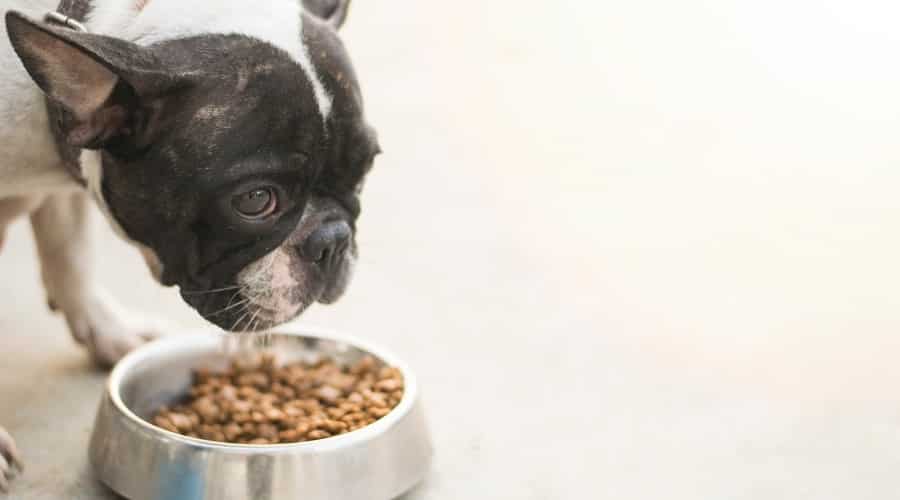
When it comes to managing the diet of your French bulldog, special dietary considerations may be necessary to address particular health concerns or conditions. Here are some common dietary needs and how to cater to them effectively.
Allergies and Sensitivities
Many French Bulldogs are prone to food allergies and sensitivities, with common allergens including beef, chicken, dairy, and grains. To address this, identifying and eliminating the specific allergen from your dog’s diet is crucial. Opting for specialized diets labeled as ” Best food for French Bulldog with skin allergies ” may help alleviate symptoms and promote better skin health.
- Hypoallergenic Diets: Consider switching to a hypoallergenic dog food that uses novel proteins like duck or venison and is free from common allergens.
- Limited Ingredient Diets: These diets contain fewer ingredients, making it easier to pinpoint and avoid the allergen.
- Consult Your Vet: Always seek veterinary advice before making significant changes to your dog’s diet to ensure it meets their nutritional needs.
Weight Management
Weight control is crucial for the health and longevity of your French bulldog. Keeping your dog at a healthy weight will prevent numerous health issues, including joint problems and respiratory difficulties.
- Low-Calorie Diets: For overweight dogs, a low-calorie diet can help them lose weight without feeling hungry.
- Portion Control: Measure your dog’s food to avoid overfeeding and provide smaller, more frequent meals.
- Exercise: Combine a balanced diet with regular physical activity to maintain a healthy weight.
Senior Dogs
As your French bulldog ages, their dietary needs will change. Senior dogs typically require fewer calories but need higher levels of fiber and certain nutrients to support their aging bodies.
- Senior Dog Food: These formulations are designed to meet the nutritional needs of older dogs, with lower fat content and higher fiber.
- Joint Supplements: Consider adding supplements like glucosamine and chondroitin for joint health.
- Hydration: Ensure your senior dog stays hydrated, especially if they are eating dry food.
Puppies
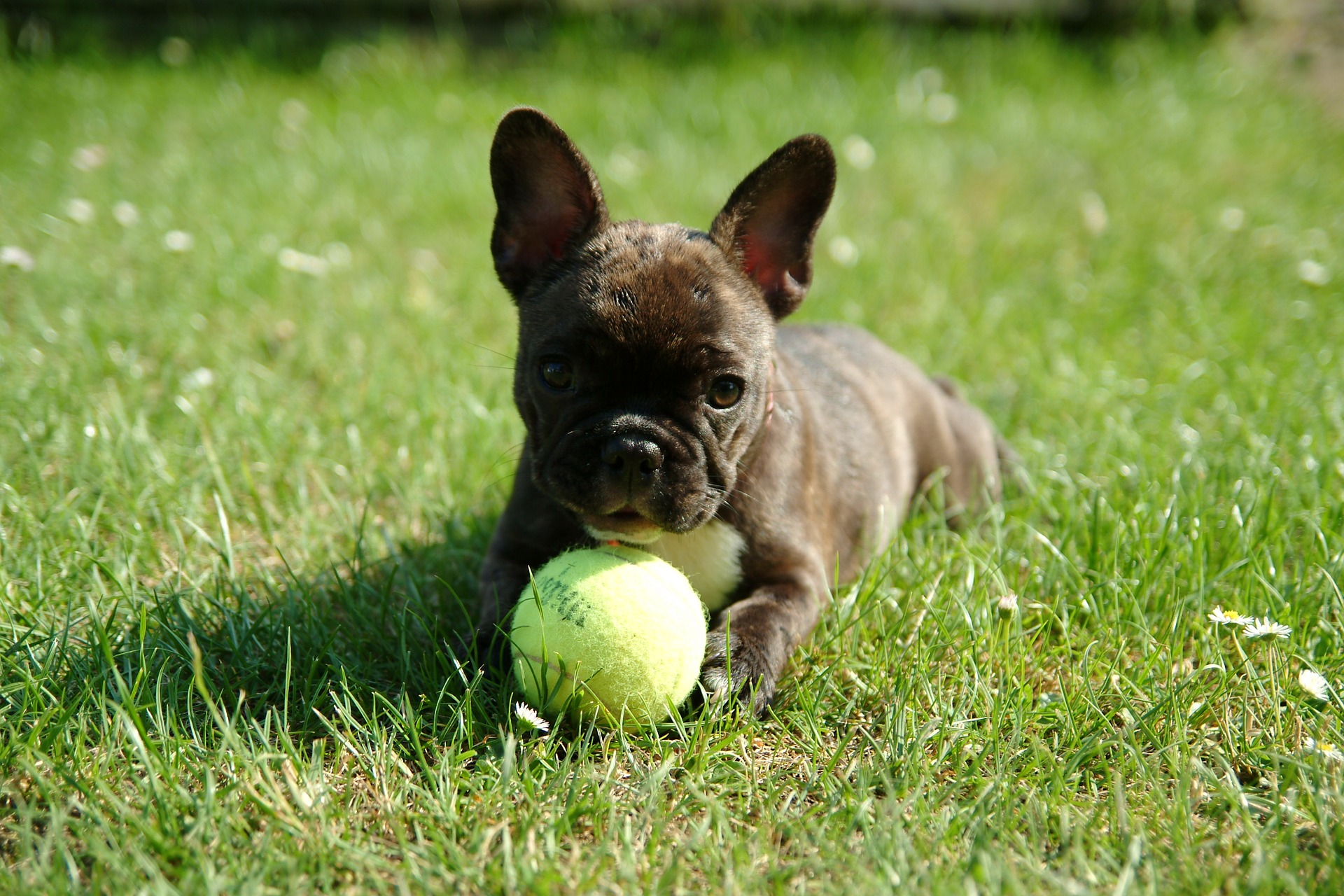
French bulldog puppies need a diet that promotes healthy growth and development. Their nutritional needs differ significantly from adults.
- Puppy Formulas: Choose a high-quality puppy best dog food for french bulldogs that contains the right balance of proteins, fats, and carbohydrates.
- Frequent Feeding: Puppies require more frequent feeding to sustain their energy levels and support their rapid growth.
- Calcium and Phosphorus: Ensure their diet has the appropriate levels of calcium and phosphorus for healthy bone development.
Digestive Issues
If your French bulldog experiences digestive issues, special dietary modifications can help alleviate their symptoms.
- Easily Digestible Foods: Opt for foods that are easy on the digestive system, such as rice and plain cooked chicken.
- Probiotics: Probiotic supplements can promote a healthy gut flora and improve digestion.
- Smaller Meals: Feeding smaller, more frequent meals can help manage digestive problems and prevent bloating.
By considering these dietary needs and making appropriate adjustments, you can ensure that your French bulldog leads a healthy and happy life. Always consult with your veterinarian before making any significant dietary changes to ensure they are suitable for your dog’s specific needs.
Hydration Needs
Adequate hydration is critical for your French bulldog’s health.
Tips for Ensuring Proper Hydration:
- Provide fresh water daily.
- Use a water fountain to encourage drinking.
- Add water to dry kibble or serve wet food.
Conclusion
Ensuring your French bulldog receives the appropriate amount and quality of food is essential for their overall well-being and contentment. By comprehending their dietary requirements, establishing a consistent feeding routine, and remaining vigilant to indications of either overfeeding or underfeeding, you can promote your Frenchie’s longevity and vitality. Remember to consult with your veterinarian for personalized nutrition recommendations and adjustments tailored to your dog’s unique requirements. “How much should a French bulldog eat ” is a common question among pet owners, and understanding the specific feeding guidelines can help ensure your Frenchie maintains a healthy weight and lifestyle. Proper nutrition serves as the cornerstone for fostering a happy and thriving French bulldog throughout their life.

At bestfoodforfrenchbulldog.net, Frenchie Feast Co is dedicated to providing the best information and advice on nutrition and food for French Bulldogs. We understand that every dog has unique nutritional needs, especially breeds like the French Bulldog. Therefore, we continually research and seek out optimal nutritional solutions.
CEO Lincoln Martin is not only the founder of BestDogFoodForDachshunds.net but also a proud Dachshund parent. With a deep understanding of the unique dietary needs of Dachshunds, Lincoln Martin is committed to helping fellow dog owners make informed decisions about their pets’ nutrition.
Driven by a love for animals and a desire to share valuable insights, our team works tirelessly to research and curate the most reliable and up-to-date information on dog food, health, and care. From reviewing the latest products to offering practical tips and advice, we strive to be your trusted source for everything Dachshund-related.
Whether you’re a new Dachshund owner or a seasoned enthusiast, you can trust the expertise and dedication of the team at BestDogFoodForDachshunds.net to support you on your journey of providing the best care for your furry friend.
